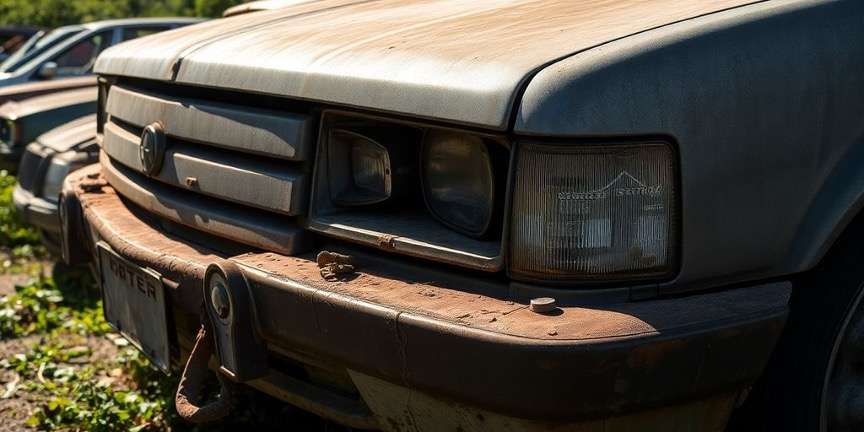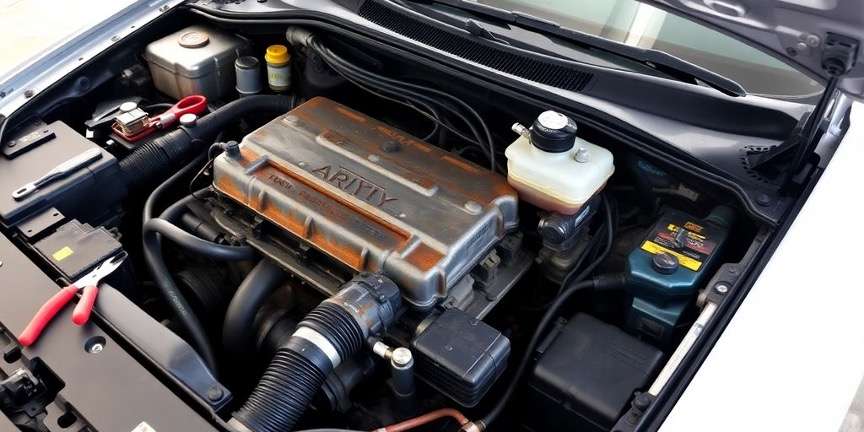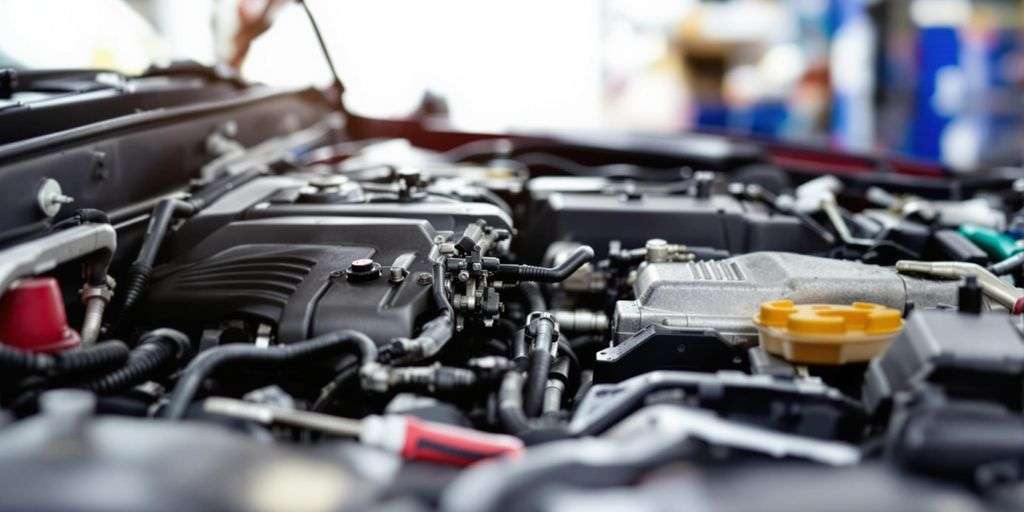Key Takeaways
- Understand your car's current value before deciding on repairs.
- Repair costs can sometimes outweigh the benefits of a higher sale price.
- Selling your car as-is might be easier and still profitable.
- There are other options like donating or trading in your car.
- Timing and choosing the right buyer can increase your profit.
Understanding the Value of Your Junk Car

Factors That Determine Junk Car Value
When you're thinking about selling your car as junk, you gotta understand what makes it worth something. Several factors play a role in determining your car's value, and it's not just about whether it can still run. Here's a breakdown:
- Condition: Is your car operational or not? This is a big one. Even if it's not running, parts might still be valuable.
- Age and Model: Older models might have parts that are hard to find, making them more desirable.
- Demand for Parts: If your car's make and model have parts that are in high demand, you might get a better price.
Take a look at the value of a junk car to understand more about how its condition affects its worth.
How to Assess Your Car's Condition
Figuring out your car's condition isn't just about taking a quick look at it. You need to be thorough:
- Check the Engine: Is it still working? If not, what might be wrong?
- Inspect the Body: Look for rust, dents, and other damage.
- Evaluate the Interior: Are the seats torn? Is the dashboard intact?
Before selling, make sure you know every nook and cranny of your car. This knowledge will help you negotiate better.
Common Misconceptions About Junk Car Worth
There's a lot of myths out there about what makes a junk car valuable. Let's clear some of them up:
- “All junk cars are worthless.” Not true. Even if it looks like a heap of metal, it might have parts that are worth something.
- “You can't sell a non-running car.” Again, wrong. Many buyers are interested in the parts, not the whole car.
- “Mileage doesn't matter.” Actually, it can. Lower mileage might mean less wear on parts, making them more valuable.
Understanding these misconceptions can help you set realistic expectations and possibly get a better deal when selling your junk car.
Evaluating Repair Costs Versus Potential Profit
Estimating Repair Expenses
Before deciding to fix your car, you need to figure out how much those repairs will hit your wallet. Start by listing the parts that need fixing or replacing. Then, get quotes from a few mechanics. You might be surprised how much prices can vary. Remember, some repairs might seem minor but can cost a lot in labor. Always factor in both parts and labor costs to get a clear picture.
Calculating Potential Sale Price After Repairs
Once you know the repair costs, think about what your car could sell for if it was in better shape. Check out similar cars online or ask a car dealer. This will give you an idea of the market price. Make sure to compare cars with the same make, model, and year as yours. If the potential sale price doesn't cover the repair costs plus a bit extra, it might not be worth the hassle.
Weighing Repair Costs Against Junk Sale Value
Now, it's time for the big decision. Compare the cost of repairs to what you'd get selling the car as junk. If fixing it costs more than you'd make selling it, maybe it's not the best move. But if repairs are cheap and the sale price is decent, go for it.
Sometimes, leaving the car as-is and selling it for parts can be the best choice. It saves time and might bring in more cash than you'd think.
In the end, it's all about balancing repair costs with potential profits. Make sure to crunch the numbers carefully before making your decision.
Exploring Alternatives to Repairing Your Car
Selling As-Is: Pros and Cons
Selling your car as-is can be a quick and hassle-free option. The main advantage is saving time and avoiding repair costs. However, this might mean accepting a lower offer from buyers. Buyers often anticipate repair needs and factor this into their price. If you're in a rush or lack the funds for repairs, selling as-is could be the best route. Weigh the potential loss against the convenience.
Donating Your Car for Tax Benefits
Donating your car can be a win-win. You support a cause and might get a tax deduction. Check if the charity is eligible for tax-deductible donations. This option might not bring immediate cash, but the tax benefits can be worthwhile. Plus, it's a good feeling to help others.
Trading In for a New Vehicle
Trading in your old car when buying a new one can simplify the process. Dealerships often accept trade-ins, and it reduces the hassle of selling independently. You might not get the highest price, but the convenience of a one-stop transaction can be appealing. Assess the trade-in offer against potential private sale earnings to decide what's right for you.
When considering alternatives to repairing your car, remember to check the requirements of the junk car company if you're thinking of selling to a junkyard. This can ensure a smooth transaction and help you avoid unexpected issues.
Steps to Take Before Selling Your Car as Junk

Gathering Necessary Documentation
Before you even think about selling your car as junk, you need to get all your paperwork in order. This means digging up the title, registration, and any other documents that prove you own the car. If you can't find the title, you might have to apply for a duplicate from your local DMV. Having these documents ready can make the selling process smoother and quicker.
Removing Personal Belongings
It's super easy to forget stuff in your car, especially if you've been driving it for years. Go through every nook and cranny, from the glove box to the trunk. You might find some long-lost treasures or just a pile of receipts. Either way, make sure you don't leave anything behind.
Understanding Legal Requirements
Every state has its own rules about selling junk cars, so it's a good idea to check out what's required in your area. Some places might need you to remove the license plates or cancel the insurance before you sell. Ignoring these steps could lead to fines or other issues down the road.
“When selling your car as junk, remember that a little preparation goes a long way in avoiding unnecessary headaches.”
By getting your documents together, clearing out your car, and knowing the legal stuff, you're setting yourself up for a hassle-free sale. And hey, it might even help you get a better deal in the end. Speaking of deals, don't forget to research the market value of your car's parts before you head to the junkyard. Knowing what those individual components are worth can give you a leg up during negotiations.
Maximizing Profit When Selling Your Junk Car
Choosing the Right Junkyard or Buyer
Finding the right place to sell your junk car can make all the difference in how much cash you walk away with. Start by researching local junkyards and buyers, comparing their offers and reputations. Some might offer a flat rate, while others could be more flexible, especially if your car has valuable parts. It’s worth checking online reviews and asking for recommendations from friends or family who’ve been in the same boat. Remember, not all buyers are created equal, so take your time to find the one that suits your needs best.
Negotiating the Best Price
Negotiation is key when it comes to selling your junk car. Don’t just accept the first offer you receive. Instead, use the information you've gathered from different buyers to your advantage. Let them know you’re considering other offers, and don’t be afraid to ask for a better deal. If your car has any parts that are in good condition, make sure to highlight these, as they can increase the value of your car. Sometimes, removing valuable components before selling can significantly increase the amount offered for the vehicle.
Timing Your Sale for Maximum Return
Timing can also play a crucial role in maximizing your profit. The demand for certain car parts can fluctuate throughout the year, so if you’re not in a rush, it might be beneficial to wait for the right moment. For example, selling a car with a working air conditioner might fetch a higher price in the summer. Keep an eye on market trends and be patient to ensure you get the best possible deal.
Selling your junk car isn’t just about getting rid of an old vehicle. It's about making sure you get the most out of it. With the right approach, you can turn what seems like a lost cause into a profitable venture.
Environmental and Ethical Considerations
Recycling and Its Benefits
Recycling your old car is like giving it a second life. Instead of letting it rust away in a landfill, recycling helps to recover materials like steel, aluminum, and plastics. This process not only conserves natural resources but also reduces energy consumption. Imagine all those parts being transformed into something useful again! Plus, recycling can cut down on greenhouse gas emissions, making it a win-win for the environment.
Ethical Disposal of Car Parts
When it comes to disposing of car parts, doing it the right way matters. Tossing car parts in the trash can lead to harmful chemicals seeping into the ground and water. Instead, consider working with a certified recycler who knows how to handle everything safely. This way, you ensure that toxic materials are managed properly. Plus, it feels good knowing you're doing your part to protect the planet.
Impact of Junk Cars on the Environment
Junk cars sitting around can be more than just an eyesore. They can leak fluids like oil and coolant, which are harmful to the environment. Over time, these leaks can contaminate soil and water sources. By selling your car to an eco-conscious buyer, you help prevent these hazards and support the economy by creating jobs in the junk car industry.
Thinking about the bigger picture, dealing with junk cars responsibly is not just about making a quick buck. It's about leaving a positive mark on the world and ensuring a cleaner future for everyone.
Wrapping It Up
So, should you fix your car before selling it for scrap? Well, it depends. If the repairs are cheap and can bump up the price, it might be worth it. But if you're looking at major fixes, you might just be throwing good money after bad. Think about the time, effort, and cash you'll need to put in. Sometimes, selling it as-is can save you a headache and still get you some cash. Weigh your options, do a bit of math, and go with what feels right for your situation. At the end of the day, it's your call. Good luck!
Frequently Asked Questions
What is a junk car?
A junk car is a vehicle that is old, damaged, or not worth fixing. It's usually sold for parts or scrap metal.
How can I find out how much my junk car is worth?
You can find out your junk car's value by checking online calculators, asking local junkyards, or getting quotes from car buying services.
Is it better to repair my car before selling it as junk?
It depends on the repair costs and the car's potential sale value. Sometimes, fixing it might get you more money, but other times it's not worth it.
What documents do I need to sell my car as junk?
You'll typically need the car's title, your ID, and sometimes a bill of sale. Check with local laws to be sure.
Can I sell my junk car without a title?
Selling without a title can be tricky, but some places might allow it with extra paperwork or proof of ownership.
What happens to my car after I sell it as junk?
After selling, your car is usually dismantled for parts or crushed for scrap metal, helping recycle materials.



